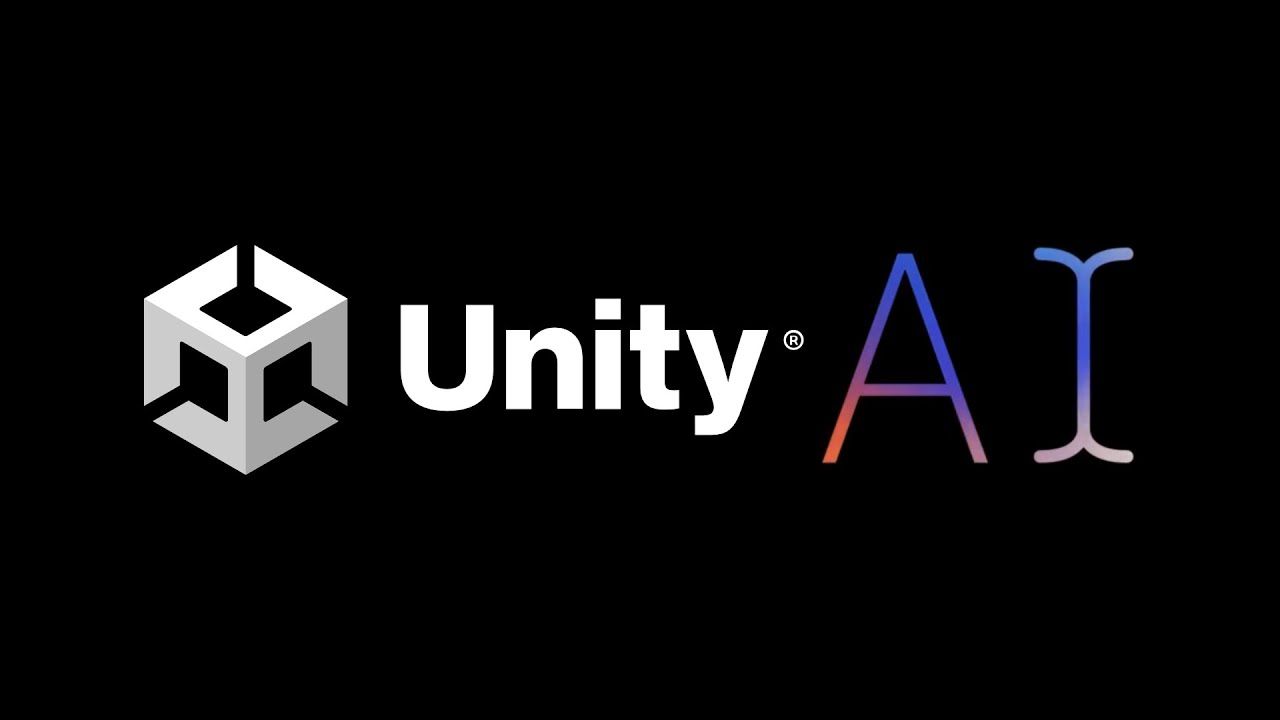Revolutionising The Gaming Industry: Harnessing AI for Game Development

The gaming industry has always been at the forefront of technological innovation. With the rise of artificial intelligence (AI), game developers are now harnessing this powerful tool to create more immersive, dynamic, and intelligent gaming experiences. The integration of AI in gaming is not just a trend; it's a revolution that's reshaping the way games are developed and played.
In this article, we'll look at the power of AI for Game Development and explore how it will drive growth within the gaming industry.
The Mechanics: How AI in Gaming Works
The integration of AI in gaming is a transformative process that has redefined the boundaries of what's possible within virtual environments. At its core, AI in gaming operates by simulating human-like intelligence, allowing games to react and adapt in real-time to player actions. This is achieved through algorithms that process vast amounts of data, learn from it, and then make decisions based on this learning.
For instance, when a player interacts with an NPC, the AI analyses the player's actions, compares it with its data, and then determines the most appropriate response or action for the NPC. This dynamic interaction ensures that the game environment is constantly evolving, making each player's experience unique.
Moreover, AI can predict player behaviour, ensuring that challenges and obstacles are tailored to each player's skill level, enhancing the overall gaming experience.
AI Techniques in Game Development
Several advanced AI techniques are now commonplace in game development, each serving a unique purpose:
- Pathfinding Algorithms: These are used to determine the most efficient route for characters to navigate through the game world. Algorithms like A* help characters avoid obstacles and find the shortest path to their destination.
- Decision Trees: This technique helps determine NPC behaviours. Based on certain conditions or player actions, NPCs can decide which action to take, making their behaviour more dynamic and less predictable.
- Neural Networks: These are complex systems modelled after the human brain, allowing for intricate decision-making and learning player behaviours. They can be used for tasks like enemy strategy formulation or predicting player actions.
- Procedural Content Generation: This technique uses algorithms to automatically generate game content, from levels to character designs, ensuring a diverse and expansive game world.
Benefits of AI for Game Developers
The incorporation of AI into game development offers a plethora of advantages:
- Enhanced Gameplay Dynamics: AI allows for a more responsive game environment. NPCs can adapt to player strategies, and game challenges can evolve based on player skill, ensuring a continually engaging experience.
- Cost and Time Efficiency: Through automating certain design elements, developers can save significant time and resources. For instance, instead of manually designing every game level, procedural generation can create diverse levels automatically.
- Personalisation: AI can learn individual player preferences and behaviours, tailoring the game experience to each player. This level of personalisation can lead to increased player retention and satisfaction.
- Realism and Immersion: With AI-driven NPCs, players can experience more realistic interactions, as these characters can exhibit lifelike behaviours, react to player actions, and even have dynamic conversations, enhancing the depth of the game world.
- Innovative Game Mechanics: AI opens the door to new gameplay mechanics and features that were previously challenging or impossible to implement, from dynamic storylines that change based on player choices to intricate in-game ecosystems that evolve over time.
AI Game Development Projects
Unity

Unity, a leading game development platform, has been at the forefront of integrating AI tools to enhance the game creation process. Their commitment to leveraging AI for game developers is evident in their innovative tools, Muse and Sentis.
Muse: Muse is designed to be a game developer's assistant during the creation process, offering two primary components:
- Text: Muse employs AI to meticulously search through Unity's vast documentation, training resources, and support content. The goal is to provide developers with structured, accurate, and up-to-date information. One of the intriguing features is its ability to generate code. While the potential of this feature is promising, the real-world applicability and reliability of the generated code remain to be fully ascertained.
- Sketches: Beyond text, Muse showcases its prowess in visual content generation. Developers can input text prompts, and Muse will produce corresponding animations and textures. What's more, if a developer sketches an image or highlights certain areas, Muse can refine and generate detailed sections of the image, offering a blend of human creativity and AI precision.
Sentis: Sentis stands out as a tool that bridges the gap between AI models and game runtime. With Sentis, developers can seamlessly embed an AI model directly into the Unity runtime. The standout feature here is the universality of its application. Regardless of the platform—be it mobile, PC, web, or console—Sentis ensures the AI model operates smoothly. This eradicates the need for cloud hosting or server connections, as the AI model is designed to run locally on the player's device. This not only ensures reduced latency but also eliminates additional costs for the developer post-training of the model.
Ubisoft
Ubisoft has unveiled an innovative AI tool that automatically generates dialogue for non-playable game characters (NPCs). This tool is designed to enhance the realism and depth of interactions within the game.
Instead of developers scripting every line of dialogue for NPCs, Ubisoft's AI tool uses advanced algorithms to create contextually relevant and diverse dialogues on the fly. This not only saves considerable time in game development but also ensures that players have a unique experience each time they interact with an NPC, as the responses can vary based on player actions and game scenarios.
Roblox
Roblox envisions a future where generative AI plays a pivotal role in content creation. Their platform, primarily known for user-generated content, is exploring AI tools that can assist in generating game assets, levels, and even gameplay mechanics.
One of the key features is the ability to use AI to generate diverse game terrains and environments based on certain parameters. This means developers can specify certain conditions or themes, and the AI will produce a game world that aligns with those specifications.
Such tools not only expedite the game development process but also introduce a level of variety and uniqueness that would be challenging to achieve manually.
Top AI-Driven Games Every Developer Should Know
The gaming industry has witnessed a surge in AI integration, with developers leveraging the technology to create more immersive, dynamic, and realistic experiences. Here are some standout games that have effectively harnessed the power of AI, setting benchmarks for others to follow:
1. The Elder Scrolls V: Skyrim
Bethesda's iconic RPG, Skyrim, introduced the Radiant AI system. This system allows non-player characters (NPCs) to make independent decisions, such as opening a store, interacting with other NPCs, or even reacting to the player's actions in a dynamic manner. This results in a world that feels alive and responsive, where every action has a consequence.
2. Alien: Isolation
The game's primary antagonist, the Xenomorph, employs a two-tiered AI system. The 'Director AI' observes the player's actions from a distance, while the 'Creature AI' directly interacts with the player. This combination ensures that the Xenomorph's behavior is unpredictable, making the horror experience genuinely tense and terrifying.
3. Middle-Earth: Shadow of Mordor
The game introduced the Nemesis System, where the orcs remember their encounters with the player. If an orc survives a battle, it will remember and react differently in subsequent encounters, sometimes even bearing scars from previous fights. This dynamic AI-driven relationship between the player and NPCs adds depth to the gameplay.
4. StarCraft II

DeepMind's AlphaStar AI made headlines by achieving Grandmaster status in StarCraft II. The game's complex strategies and rapid decision-making processes were a testament to the capabilities of AI in mastering intricate gameplay mechanics. For developers, this showcased the potential of AI in creating challenging and adaptive in-game opponents.
5. Red Dead Redemption 2
Rockstar's open-world masterpiece boasts of an intricate ecosystem where animals behave realistically based on their surroundings and the time of day. NPCs also have their own routines and will react differently based on the player's reputation and actions in the game, offering a deeply immersive experience.
Challenges and Criticisms: Balancing AI and Human Creativity
The integration of AI in game development has undeniably opened doors to numerous possibilities, but it's not without its challenges and criticisms.
One of the primary concerns revolves around the balance between AI and human creativity. While AI can generate content, there's a fear that over-reliance on it might stifle human innovation and lead to homogenised game experiences. Critics argue that the unique touch of a human developer, their intuition, and emotional intelligence can't be replicated by algorithms.
Moreover, there are ethical concerns, especially when it comes to data usage and the potential for AI to generate content that infringes on copyrights. The debate on how much influence AI should have in the creative process is ongoing, with developers and gamers alike voicing their opinions.
The Future Landscape: What's Next for AI in Games?
The trajectory of AI in the gaming industry is undeniably upward. As technology continues to advance, we can expect AI to play an even more significant role in shaping gaming experiences.
Predictive analytics, for instance, will allow games to adapt in real-time to a player's style, offering personalised challenges. There's also the potential for more immersive VR experiences, with AI-driven NPCs that can interact with players in increasingly realistic ways.
Moreover, the rise of generative AI tools, like those introduced by Roblox, hints at a future where game creation becomes more accessible to a broader audience, democratising game development.
Conclusion: AI Led Growth in the Gaming Industry
The gaming industry stands at the cusp of an AI revolution. From enhancing gameplay mechanics to redefining the game development process, AI's influence is pervasive.
While challenges exist, the potential benefits far outweigh the drawbacks. The integration of AI promises richer, more dynamic, and personalised gaming experiences. As developers continue to harness the power of AI, we can anticipate a future where games are not just played but lived, offering experiences that blur the lines between virtual and reality.
The growth driven by AI in the gaming industry is just the beginning, and the best is yet to come.